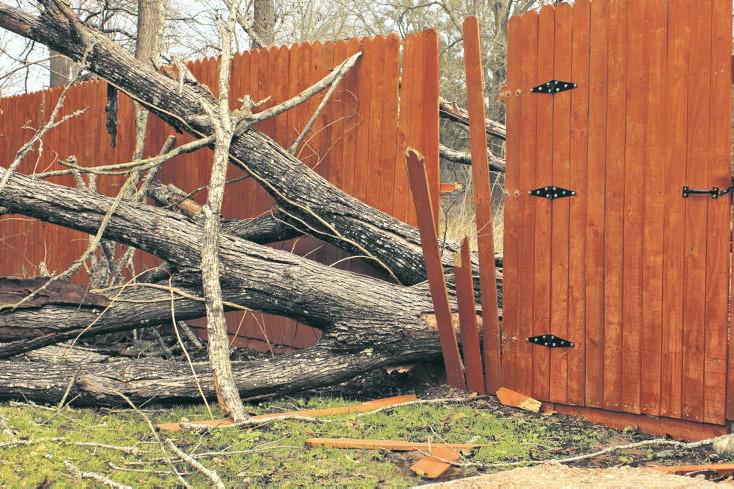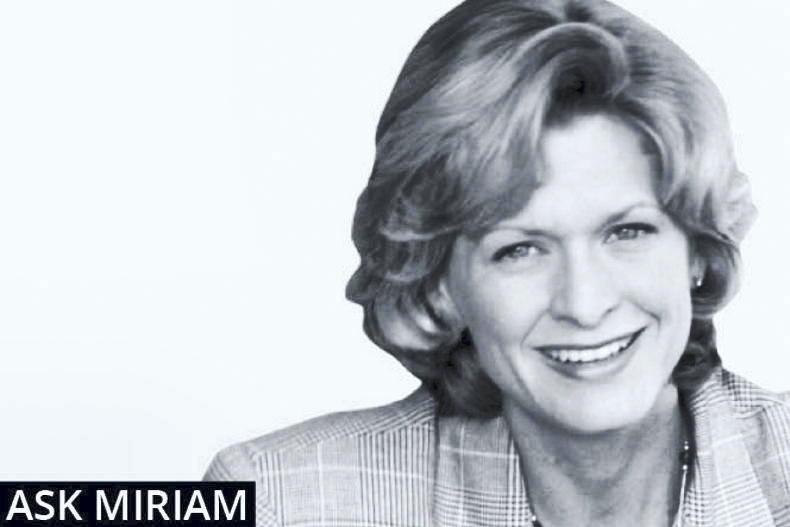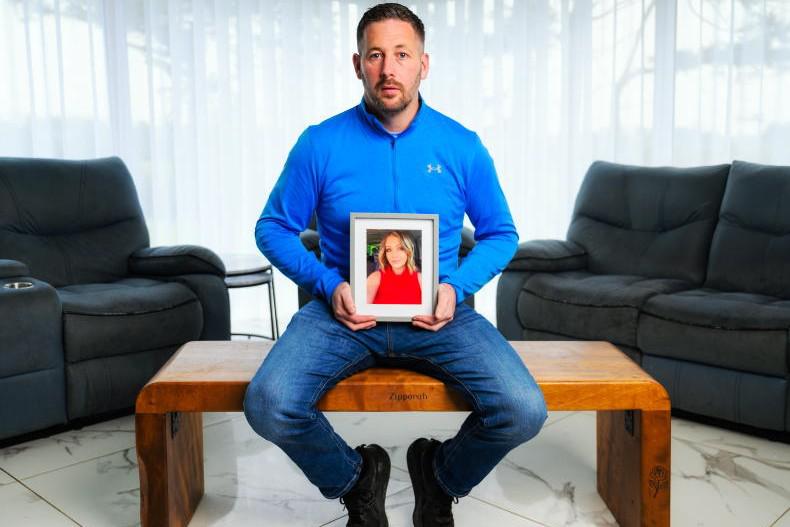“I recently discovered that my late brother appointed me as executor under his will. What does this mean? What are my responsibilities? He has three adult children and I would prefer if I was left out of it – can I
say that I do not want to do it? Should I have
been asked in advance?”
It is a difficult situation for you at a time of loss and bereavement of your brother and I am sorry for your loss.
An executor is the person, usually a trusted relative or friend, selected by the deceased when making his/her will to administer his/her estate and carry his/her wishes into effect.
Listen to "Legal Matters with solicitor Aisling Meehan" on Spreaker.
The executor’s powers and duties arise at the date of death of the deceased. The general rule is that an executor sufficiently discharges his/her duty where he/she takes all precautions which an ordinary prudent person would take in managing the affairs.
While it is possible to make a personal application to the probate office, most people would engage a solicitor to guide them in the administration of the estate
The executor may not delegate his/her authority, but they may need to employ others such as solicitors, auctioneers or accountants to help them. While it is possible to make a personal application to the probate office, most people would engage a solicitor to guide them in the administration of the estate. Examples of things that would need to be done by the executor would include:
Go through the deceased’s papers (banks/statements/insurance policies/savings certs/shares/stocks/title deeds and any other papers which will help to identify the assets and liabilities of the estate).Financial institutions will generally release funds to pay for the funeral expenses.Insurance cover on property or other valuable assets should be checked.It should be ascertained whether the deceased was in receipt of a pension and/or the Fair Deal Scheme and the relevant agencies notified of the deceased’s death.Clearance from income tax must be obtained. Valuations must be obtained setting out the value of all the assets and liabilities of the estate at the date of death.Practical steps may involve removing valuables, turning off mains water, installing additional locks/alarms, informing neighbours, the insurance company and the local garda station if the house is unoccupied.As can be seen, the role of executor is quite onerous and a person making a will should consider very carefully the responsibility and indeed the burden that he/she may be placing on a prospective executor. Although recommended it is not necessary for the executor to be asked in advance.
There is nothing whatsoever to prevent a family member who may also be a beneficiary from acting as executor if they are appointed under the will. As an executor is not entitled to be paid unless there is specific provision allowing for it in the will, it is normally advisable to appoint somebody that is going to benefit from the will as executor as they have something to gain from doing the job so long as a conflict of interest would not arise.
An executor who has intermeddled in the deceased’s estate cannot renounce at a later point as he/she will be deemed to have accepted office
An executor has a choice to accept, reserve or renounce the executorship.
Once an executor accepts his/her appointment and the “grant of probate” issues (this is the formal legal process, which authorises someone to deal with a deceased person’s estate), the executor cannot then try to renounce without the consent of the High Court. Indeed, an executor who has intermeddled in the deceased’s estate cannot renounce at a later point as he/she will be deemed to have accepted office.
If a person reserves their rights, they do not have to execute any document but can come back into the administration later. Reservation of rights only arises where there is more than one executor appointed.
In the event of an executor renouncing their right to act, by signing a formal “Form of Renunciation”, they cannot come back in at a later stage. If a sole executor named in a will renounces his/her rights to probate, then a “grant of administration with will annexed” must be applied for from the Probate office with the added complexities that this will entail including a financial bond. Who would be entitled to apply is determined by specific rules but the person entitled to the residue of the estate under the will, is usually the person next entitled to take out the grant if there is no executor to act under the will.
Finally, it is worth highlighting that the executor does not necessarily need to engage the solicitor that drew up the will for the deceased in the administration of the estate. They should choose a solicitor with the relevant expertise for the estate that they are dealing with.
Disclaimer: The information in this article is intended as a general guide only. While every care is taken to ensure accuracy of information contained in this article, Aisling Meehan, Agricultural Solicitors does not accept responsibility for errors or omissions howsoever arising. Email info@agrisolicitors.ie
Read more
Legal: long-term consequences from long-term leasing
Making a will during self-isolation
“I recently discovered that my late brother appointed me as executor under his will. What does this mean? What are my responsibilities? He has three adult children and I would prefer if I was left out of it – can I
say that I do not want to do it? Should I have
been asked in advance?”
It is a difficult situation for you at a time of loss and bereavement of your brother and I am sorry for your loss.
An executor is the person, usually a trusted relative or friend, selected by the deceased when making his/her will to administer his/her estate and carry his/her wishes into effect.
Listen to "Legal Matters with solicitor Aisling Meehan" on Spreaker.
The executor’s powers and duties arise at the date of death of the deceased. The general rule is that an executor sufficiently discharges his/her duty where he/she takes all precautions which an ordinary prudent person would take in managing the affairs.
While it is possible to make a personal application to the probate office, most people would engage a solicitor to guide them in the administration of the estate
The executor may not delegate his/her authority, but they may need to employ others such as solicitors, auctioneers or accountants to help them. While it is possible to make a personal application to the probate office, most people would engage a solicitor to guide them in the administration of the estate. Examples of things that would need to be done by the executor would include:
Go through the deceased’s papers (banks/statements/insurance policies/savings certs/shares/stocks/title deeds and any other papers which will help to identify the assets and liabilities of the estate).Financial institutions will generally release funds to pay for the funeral expenses.Insurance cover on property or other valuable assets should be checked.It should be ascertained whether the deceased was in receipt of a pension and/or the Fair Deal Scheme and the relevant agencies notified of the deceased’s death.Clearance from income tax must be obtained. Valuations must be obtained setting out the value of all the assets and liabilities of the estate at the date of death.Practical steps may involve removing valuables, turning off mains water, installing additional locks/alarms, informing neighbours, the insurance company and the local garda station if the house is unoccupied.As can be seen, the role of executor is quite onerous and a person making a will should consider very carefully the responsibility and indeed the burden that he/she may be placing on a prospective executor. Although recommended it is not necessary for the executor to be asked in advance.
There is nothing whatsoever to prevent a family member who may also be a beneficiary from acting as executor if they are appointed under the will. As an executor is not entitled to be paid unless there is specific provision allowing for it in the will, it is normally advisable to appoint somebody that is going to benefit from the will as executor as they have something to gain from doing the job so long as a conflict of interest would not arise.
An executor who has intermeddled in the deceased’s estate cannot renounce at a later point as he/she will be deemed to have accepted office
An executor has a choice to accept, reserve or renounce the executorship.
Once an executor accepts his/her appointment and the “grant of probate” issues (this is the formal legal process, which authorises someone to deal with a deceased person’s estate), the executor cannot then try to renounce without the consent of the High Court. Indeed, an executor who has intermeddled in the deceased’s estate cannot renounce at a later point as he/she will be deemed to have accepted office.
If a person reserves their rights, they do not have to execute any document but can come back into the administration later. Reservation of rights only arises where there is more than one executor appointed.
In the event of an executor renouncing their right to act, by signing a formal “Form of Renunciation”, they cannot come back in at a later stage. If a sole executor named in a will renounces his/her rights to probate, then a “grant of administration with will annexed” must be applied for from the Probate office with the added complexities that this will entail including a financial bond. Who would be entitled to apply is determined by specific rules but the person entitled to the residue of the estate under the will, is usually the person next entitled to take out the grant if there is no executor to act under the will.
Finally, it is worth highlighting that the executor does not necessarily need to engage the solicitor that drew up the will for the deceased in the administration of the estate. They should choose a solicitor with the relevant expertise for the estate that they are dealing with.
Disclaimer: The information in this article is intended as a general guide only. While every care is taken to ensure accuracy of information contained in this article, Aisling Meehan, Agricultural Solicitors does not accept responsibility for errors or omissions howsoever arising. Email info@agrisolicitors.ie
Read more
Legal: long-term consequences from long-term leasing
Making a will during self-isolation









SHARING OPTIONS